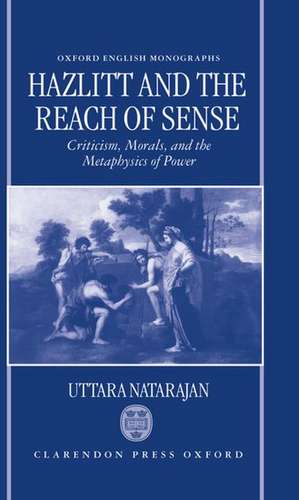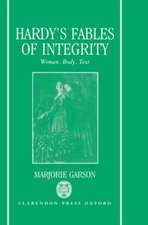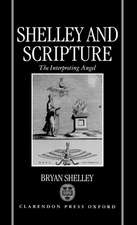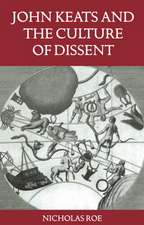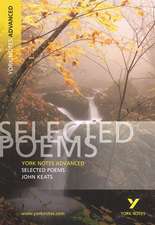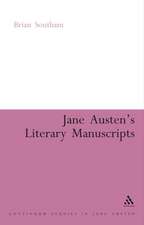Hazlitt and the Reach of Sense: Criticism, Morals, and the Metaphysics of Power: Oxford English Monographs
Autor Uttara Natarajanen Limba Engleză Hardback – 18 noi 1998
Din seria Oxford English Monographs
- 12%
 Preț: 492.54 lei
Preț: 492.54 lei - 28%
 Preț: 472.45 lei
Preț: 472.45 lei - 28%
 Preț: 487.35 lei
Preț: 487.35 lei - 23%
 Preț: 473.01 lei
Preț: 473.01 lei - 24%
 Preț: 498.33 lei
Preț: 498.33 lei - 21%
 Preț: 528.16 lei
Preț: 528.16 lei - 28%
 Preț: 497.29 lei
Preț: 497.29 lei - 28%
 Preț: 406.14 lei
Preț: 406.14 lei - 16%
 Preț: 473.94 lei
Preț: 473.94 lei - 28%
 Preț: 473.47 lei
Preț: 473.47 lei - 26%
 Preț: 527.79 lei
Preț: 527.79 lei - 22%
 Preț: 497.63 lei
Preț: 497.63 lei - 30%
 Preț: 516.27 lei
Preț: 516.27 lei - 28%
 Preț: 437.84 lei
Preț: 437.84 lei - 26%
 Preț: 515.71 lei
Preț: 515.71 lei - 28%
 Preț: 498.33 lei
Preț: 498.33 lei - 12%
 Preț: 494.84 lei
Preț: 494.84 lei - 27%
 Preț: 407.74 lei
Preț: 407.74 lei - 23%
 Preț: 472.09 lei
Preț: 472.09 lei - 16%
 Preț: 472.24 lei
Preț: 472.24 lei - 16%
 Preț: 473.16 lei
Preț: 473.16 lei - 25%
 Preț: 490.28 lei
Preț: 490.28 lei - 25%
 Preț: 521.94 lei
Preț: 521.94 lei - 30%
 Preț: 505.56 lei
Preț: 505.56 lei - 30%
 Preț: 673.12 lei
Preț: 673.12 lei - 34%
 Preț: 774.20 lei
Preț: 774.20 lei - 23%
 Preț: 329.18 lei
Preț: 329.18 lei - 34%
 Preț: 800.49 lei
Preț: 800.49 lei - 34%
 Preț: 1078.63 lei
Preț: 1078.63 lei - 34%
 Preț: 1034.87 lei
Preț: 1034.87 lei - 34%
 Preț: 1167.37 lei
Preț: 1167.37 lei - 34%
 Preț: 1019.76 lei
Preț: 1019.76 lei - 31%
 Preț: 351.12 lei
Preț: 351.12 lei - 20%
 Preț: 230.49 lei
Preț: 230.49 lei - 34%
 Preț: 979.50 lei
Preț: 979.50 lei - 34%
 Preț: 1181.23 lei
Preț: 1181.23 lei - 34%
 Preț: 1035.56 lei
Preț: 1035.56 lei - 20%
 Preț: 272.80 lei
Preț: 272.80 lei - 34%
 Preț: 1035.28 lei
Preț: 1035.28 lei - 34%
 Preț: 1080.62 lei
Preț: 1080.62 lei - 46%
 Preț: 466.34 lei
Preț: 466.34 lei - 34%
 Preț: 991.10 lei
Preț: 991.10 lei - 34%
 Preț: 874.40 lei
Preț: 874.40 lei - 31%
 Preț: 698.29 lei
Preț: 698.29 lei - 34%
 Preț: 860.98 lei
Preț: 860.98 lei - 34%
 Preț: 1108.02 lei
Preț: 1108.02 lei - 34%
 Preț: 859.05 lei
Preț: 859.05 lei - 34%
 Preț: 1006.88 lei
Preț: 1006.88 lei - 34%
 Preț: 1196.96 lei
Preț: 1196.96 lei - 31%
 Preț: 421.29 lei
Preț: 421.29 lei
Preț: 429.63 lei
Preț vechi: 627.03 lei
-31% Nou
Puncte Express: 644
Preț estimativ în valută:
82.24€ • 89.36$ • 69.12£
82.24€ • 89.36$ • 69.12£
Carte tipărită la comandă
Livrare economică 09-15 aprilie
Preluare comenzi: 021 569.72.76
Specificații
ISBN-13: 9780198184379
ISBN-10: 0198184379
Pagini: 224
Dimensiuni: 143 x 224 x 17 mm
Greutate: 0.41 kg
Editura: Clarendon Press
Colecția Clarendon Press
Seria Oxford English Monographs
Locul publicării:Oxford, United Kingdom
ISBN-10: 0198184379
Pagini: 224
Dimensiuni: 143 x 224 x 17 mm
Greutate: 0.41 kg
Editura: Clarendon Press
Colecția Clarendon Press
Seria Oxford English Monographs
Locul publicării:Oxford, United Kingdom
Recenzii
Uttara Natarajan's fine monograph on Hazlitt, Hazlitt and the Reach of Sense: Criticism, Morals and the Metaphysics of Power is a rigorous and scholarly text which examines Hazlitt in relation to the history of ideas.
The book as a whole presents a finely tuned, clearly articulated argument for Hazlitt's consistency as philosopher and critic, remarkable for its erudite and lively engagement with Hazlitt's writings, his contemporary influences, and his critics
The book as a whole presents a finely tuned, clearly articulated argument for Hazlitt's consistency as philosopher and critic, remarkable for its erudite and lively engagement with Hazlitt's writings, his contemporary influences, and his critics
